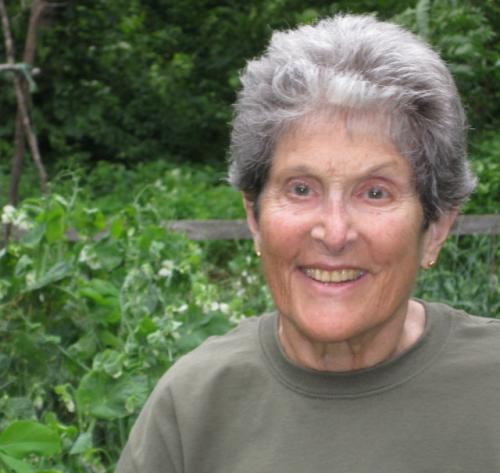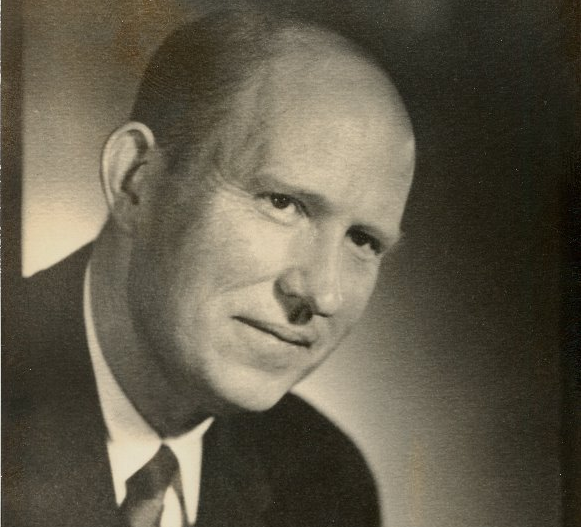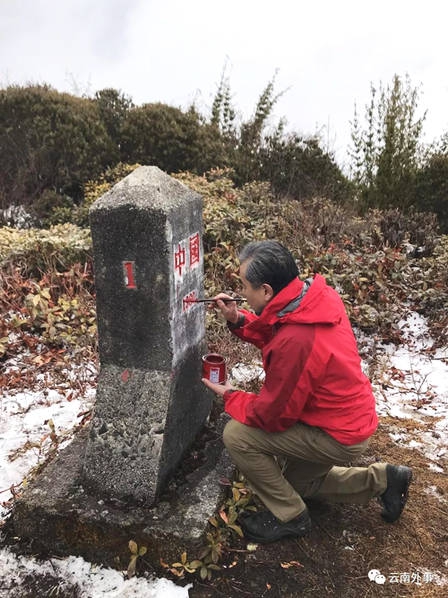A hefty question still puzzles planetary scientists: What happened to Venus990 Archives
Though Venus and Earth are similarly-sized rocky worlds occupying similar parts of the solar system, Venus is a hellish land hot enough to melt lead. Meanwhile, stunning biodiversity flourishes on temperate Earth. Somewhere, their stories diverged.
Later this decade, NASA will launch its DAVINCI mission — short for Deep Atmosphere Venus Investigation of Noble gases, Chemistry, and Imaging — to collect unprecedented observations of our torrid sister planet. As laid out in a new paper by mission researchers, the probe will help answer elusive questions: Did Venus harbor oceans? Was it habitable? What, exactly, is happening on its surface?
"Venus has always been this enigmatic sister planet."
On a Venusian day in 2031, at high noon, the DAVINCI spacecraft will drop a three-foot-wide titanium sphere through Venus' thick clouds. It will ingest gases. It will run experiments. It will endure extremes of heat and pressure. It will show us what Venusian mountains actually look like. If all goes as planned, just a single hour of observations will transform our understanding of Venus.
"Venus has always been this enigmatic sister planet," Jim Garvin, who leads NASA's DAVINCI mission, told Mashable. "Why doesn't Venus look like Earth?" he wonders.
SEE ALSO: Strange, unexpected things are happening on Neptune An illustraton of the DAVINCI probe, with its heat shield still attached, dropping through the Venusian atmosphere. Credit: NASA / GSFC / CI Labs / Michael Lentz
An illustraton of the DAVINCI probe, with its heat shield still attached, dropping through the Venusian atmosphere. Credit: NASA / GSFC / CI Labs / Michael Lentz It's not easy to peer into, nor understand, Venus.
The planet's clouds are some 19 miles (30 kilometers) thick, which largely shroud the world below. In the early 1990s, NASA's Magellan orbiter used a cloud-penetrating radar to map a good portion of Venus' surface, which discovered lava flows, mountains, craters, and beyond. But still, our grasp of this dynamic world is "fuzzy," Garvin said. Several Soviet probes landed on the surface in the 1970s and 1980s and returned back the only footage ever captured from Venus' surface. But under crushing pressure and heat, these machines never survived for even two hours. (The surface pressure on Venus is 90 timesthat on Earth, or about the same pressure 1 mile beneath the ocean.)
Engineers aren't building the DAVINCI probe to survive for much more than an hour as it drops through Venus' clouds, and then hits the surface at some 25 mph. But even a short trip demands a robust spacecraft. It's a sphere of titanium, one of the strongest metals on Earth. Beyond withstanding intense pressure and searing heat, the craft and its science instruments must endure acidic clouds.
"It's a relatively tranquil fall."
As DAVINCI drops through the atmosphere, it will make thousands of observations. The probe will measure the air pressure and temperature every fifty feet; it will inhale and identify different gases; it will run experiments aboard the sphere, such as analyzing telltale chemicals that can prove liquid water once existed or flowed on the planet (it certainly doesn't anymore). "We're bringing the lab to Venus," Garvin said.
The plummeting probe has an extremely packed 60 minute-itinerary as it falls through the atmosphere, which it enters at some 120 kilometers, or 75 miles, above the surface.
At 70 kilometers (44 miles):The probe will jettison its protective heat shield. The probe will then release a parachute and start dropping gently through the Venusian sky, held on by heat-resistant Kevlar cables. It will ingest and analyze gases, and beam this information up to the DAVINCI relay spacecraft orbiting above the planet (this craft carried the probe to Venus, and then dropped it into the clouds).
At 40 kilometers (25 miles):The probe ditches its parachute. It's now gently free-falling through the thick atmosphere like a stone in water, at some 25 mph. "It's a relatively tranquil fall," Garvin explained. The probe will continue to ingest gases and beam that data up to the spacecraft above.
At 10 kilometers (six miles): The probe will enter a zone of immensely dense pressure, where the carbon dioxide atmosphere is just twelve times less dense than water. The views will still be foggy, but DAVINCI's specialized cameras will identify different rock types below.
At 1.5 kilometers (about a mile): The views will be glorious. The probe will descend to the mountains in the rugged Alpha Regio region. "We'll have clear images of the mountains of Venus for the very first time," Garvin marveled.
Landing: The mission is over by the timethe probe thunks down on Venus' surface. The titanium probe, baking in 900-degree Fahrenheit temperatures, may last up to 17 minutes, still collecting information on the mysterious Venusian surface.
 The thick Venusian clouds. Credit: NASA / JPL-Caltech
The thick Venusian clouds. Credit: NASA / JPL-Caltech There are likely over 1 trillion exoplanets, or planets beyond our solar system, in the Milky Way galaxy alone. And many of the smaller, Earth-sized planets may be similar to Venus. These are "exo-Venuses," if you will.
The new James Webb Space Telescope — the most powerful such telescope ever built — will soon focus on exoplanets in our galaxy, and researchers might find many Venus-like worlds (these planets can be bright and reflective, and they're also close to their respective stars, making them easier to spot as they transit by). Crucially, if planetary scientists want to better understand these Venus-like worlds — if they're habitable or if they harbor oceans like Venus once might have — they need to better understand the actual Venus next door, which comes as close as 38 million miles from Earth.
"We have to know our Venus."
"We have to know our Venus," emphasized Garvin.
Some simulations of Venus' evolution predicted it had an ocean for some 2 or 3 billion years. That's a lot of time for potential life to evolve. Out in the deeper cosmos, other exo-Venuses might harbor similar environments.
But first, planetary scientists must grasp more about Venus' history. The hardy DAVINCI probe will pick up clues about past water, and beyond, on the planet. We've seen many images of the cloud-shrouded Venus, but understand little of what lies, and once existed, below.
"We haven't seen anything yet," Garvin said.
 Alabama’s Tiny Terror
Alabama’s Tiny Terror
 Remembering Mavis Gallant
Remembering Mavis Gallant
 'Teenage Mutant Ninja Turtles: Mutant Mayhem' review: Action
'Teenage Mutant Ninja Turtles: Mutant Mayhem' review: Action
 Instagram has automatic captions now, and they look slick
Instagram has automatic captions now, and they look slick
 Through the Eyes of Men
Through the Eyes of Men
 Remembering Maxine Kumin by Dan Piepenbring
Remembering Maxine Kumin by Dan Piepenbring
 Sadie Stein on R. S. Thomas’s poem “Luminary”
Sadie Stein on R. S. Thomas’s poem “Luminary”
 Happy Birthday, A. R. Ammons
Happy Birthday, A. R. Ammons
 The Longest Miles
The Longest Miles
 Facebook settlement deadline nears: How to claim your piece of the $725M
Facebook settlement deadline nears: How to claim your piece of the $725M
 The Perishable Politician
The Perishable Politician
 Coming of Age by Sadie Stein
Coming of Age by Sadie Stein
 The Morning News Roundup for February 20, 2014
The Morning News Roundup for February 20, 2014
 The Morning News Roundup for February 19, 2014
The Morning News Roundup for February 19, 2014
 Dr. Zuckerstein’s Monster
Dr. Zuckerstein’s Monster
 The Morning News Roundup for February 7, 2014
The Morning News Roundup for February 7, 2014
 Keep Smiling by Tara Isabella Burton
Keep Smiling by Tara Isabella Burton
 Instant Happy Woman by Sadie Stein
Instant Happy Woman by Sadie Stein
 The Longest Miles
The Longest Miles
 'Haunted Mansion' review: Justin Simien brings fresh life to fright
'Haunted Mansion' review: Justin Simien brings fresh life to fright
Best cellphone deal: Save $300 on the Google Pixel 9 Pro XLBest tablet deal: Save $45 on Amazon Fire HD 10Tesla tradeNYT Strands hints, answers for March 21How to watch 'Wicked' at home: Here's where it's streamingHouston vs. Gonzaga 2025 livestream: How to watch March Madness for freeBest Apple deal: Save over $20 on AirPods 4 (without ANC)England vs. Albania 2025 livestream: Watch World Cup qualifiers for freeRoborock Saros 10 vs. S8 MaxV Ultra: All the new upgradesNYT Connections hints and answers for March 22: Tips to solve 'Connections' #650.Ecuador vs. Venezuela 2025 livestream: Watch World Cup Qualifiers for freeTikTok launches inNYT Connections Sports Edition hints and answers for March 24: Tips to solve Connections #182France vs. Croatia 2025 livestream: Watch UEFA Nations League for free'Split Fiction' is getting a movie adaptationToday's Hurdle hints and answers for March 21, 2025Ecuador vs. Venezuela 2025 livestream: Watch World Cup Qualifiers for freeNYT Connections Sports Edition hints and answers for March 23: Tips to solve Connections #181New Zealand vs. Pakistan 2025 livestream: Watch 4th T20 for freeBest Echo deal: Save $20 on Amazon Echo Show 5 HBO Max to be rebranded as Max Smart garments: How digital clothing tags can promote sustainability in fashion Everything you need to know about HBO Max becoming Max 'Succession' helped this son's grief over his father Intercom drops Twitter support citing Musk's new exorbitant API pricing How to masturbate while in close quarters, according to a sex expert The 17 best tweets this week featured Elon Musk, MJ, salmon, and more Elon Musk said the Twitter Files are basically dead We put up a billboard inviting the world to our housemate's Zoom birthday party 'Quordle' today: See each 'Quordle' answer and hints for April 14 Governor reads 'Harry Azcrac' in virtual graduation ceremony prank Rutgers University strike brings education to the picket line Martin Shkreli won't get released from prison to research coronavirus TikTokGPT: ChatGPT's mission to make someone TikTok famous in 30 days FrolicMe's glossy videos are actual 'porn for women' Restaurant uses greenhouses so diners can socially distance while eating out Artists donate free, uplifting images to the UN in pandemic response NPR officially departs Twitter after being labeled 'government TikTok's sister app Lemon8 is getting big here in the US. What is it, and is it safe? Elon Musk just shut down automation for important public safety accounts
1.8382s , 10155.1796875 kb
Copyright © 2025 Powered by 【1990 Archives】,Fresh Information Network